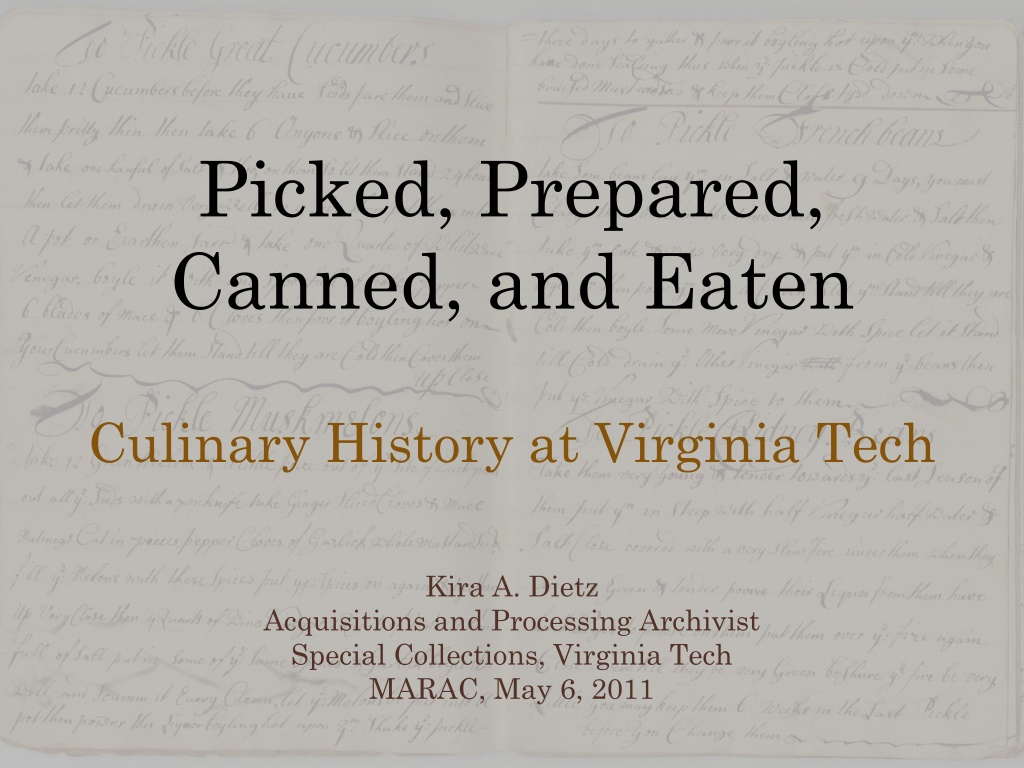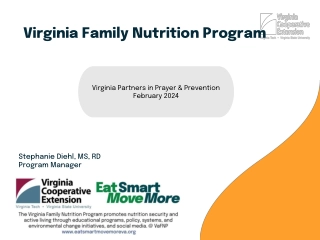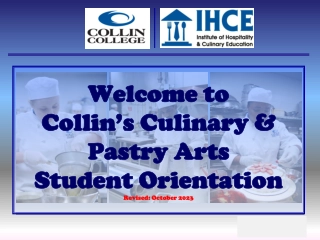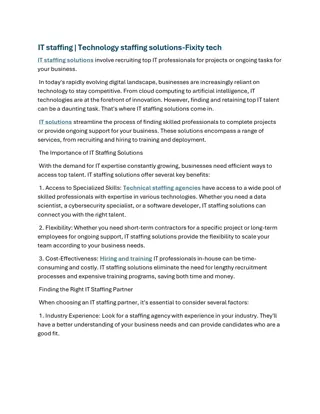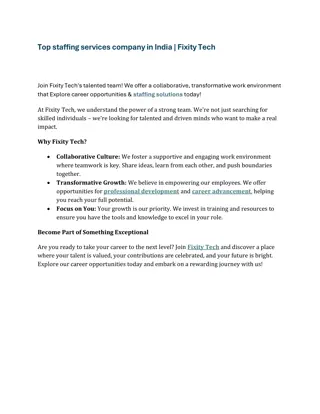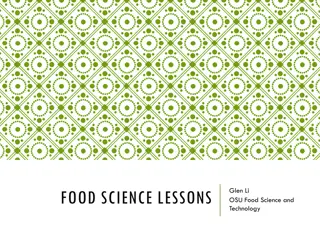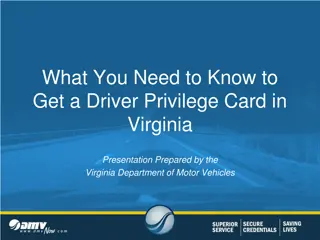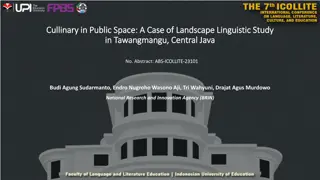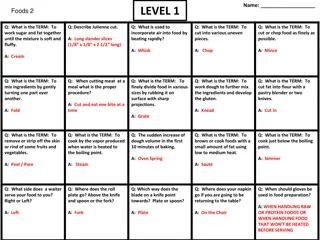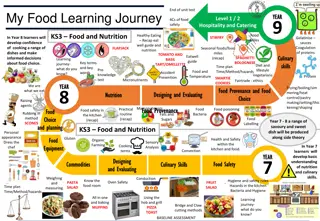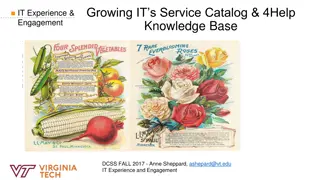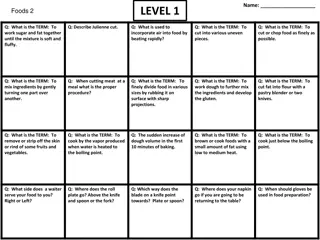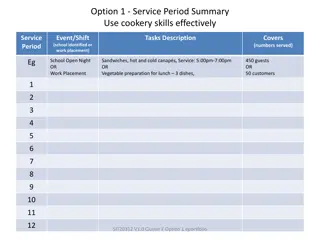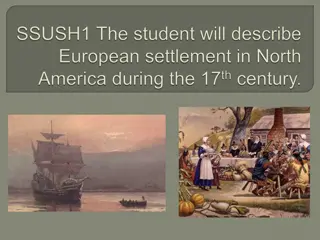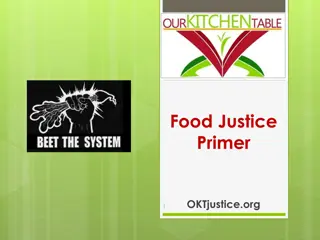Culinary History Collection at Virginia Tech: A Dive into Food and Culture
Explore the rich Culinary History Collection at Virginia Tech, which includes over 3,700 volumes, featuring regional cookbooks, manuscript collections, and documents reflecting changes in food behavior and technology. Delve into a treasure trove of recipes, household account ledgers, and faculty papers that provide insights into social, domestic, and economic history.
Download Presentation

Please find below an Image/Link to download the presentation.
The content on the website is provided AS IS for your information and personal use only. It may not be sold, licensed, or shared on other websites without obtaining consent from the author. Download presentation by click this link. If you encounter any issues during the download, it is possible that the publisher has removed the file from their server.
E N D
Presentation Transcript
Picked, Prepared, Canned, and Eaten Culinary History at Virginia Tech Kira A. Dietz Acquisitions and Processing Archivist Special Collections, Virginia Tech MARAC, May 6, 2011
Management is an art that may be acquired by every woman of good sense and tolerable memory. Introduction to The Virginia Housewife: or, Methodical Cook, 1820
Origins of the Collection Peacock-Harper Collection (1999) + Ann Hertzler Children s Literature and Nutrition Collection (2006-present) + Purchases (c.2000-present) + Donations (1999-present) = Culinary History Collection at Special Collections
About the Culinary History Collection Currently contains more than 3,700 volumes 2,400+ of these are housed in Special Collections Also contains two dozen manuscript collections Handwritten receipt (recipe) and home remedy books, household account ledgers, faculty papers, and product pamphlets/publications
Collection Focus Recently revisited our Collection Development policy, originally created in 1999. Emphasis on: Regional cookbooks and materials from dieticians, extension/home demonstration agents, chefs Community cookbooks (Virginia and Appalachia) Brand-name cookbooks and product publications Menus, nutrition education, and kitchen planning Books documenting social, domestic, and economic history; changes in food behavior; food-related processing and technology Faculty papers Manuscript receipt/recipe books
Bean taffy easily takes first rank among all the taffies vegetable or otherwise. The taste is good beyond words, and the consistency is pleasingly chewy without being tenacious to the point of teeth pulling! Lima beans are the best to use From Mary Elizabeth Hall s Candy-making revolutionized; confectionery from vegetables. New York: Sturgis & Walton Co., 1912
Picked: Donations and Purchases Donations Form the majority of the collection to date Method of acquisition the department is dependent upon Mostly books, but this is changing as word of the collection is spreading Purchases No dedicated fund or endowment for general culinary materials in Special Collections Endowment for Children s Literature and Nutrition Collection materials
Prepared: Access Department goals: Getting materials into the hands of researchers Meeting the demand for 24/7 access to materials to the extent possible Catalog records Finding aids Posting collection guides for manuscript items/collections on Virginia Heritage: http://ead.lib.virgina.edu Culinary Pamphlet Collection, Ms2011-002
Canned: Preservation Department goals: Preserving fragile and rare materials for the future What we can do Keep unique items out of circulation Digitize manuscript materials Ms2008-023 Ms2008-024 Digitizing books Recipes from Old Virginia (1946) Virginia Cookery Book (1884)
Eaten: Reference and Research General Inquiries Recent Projects Approaches to children s nutrition through cookbooks in the mid-20thcentury Preservation methodologies (pickling) Music inspired by vegetable poetry! Future Plans New ideas for potential research uses Outreach through exhibits, events, tours, and classes
I would say to housewives, be not daunted by one failure, nor by twenty. Resolve that you will have good bread, and never cease striving after this result until you have effected it. If persons without brains can accomplish this, why cannot you? Housekeeping in Old Virginia, c.1879
Questions? Contact Information: Kira A. Dietz Acquisitions and Processing Archivist Special Collections, Virginia Tech kadietz@vt.edu
